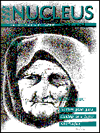I must admit that I started this book with a certain degree of trepidation. I knew that it was about a medical missionary in the Congo (now Zaire) and all I knew about the Congo was from Audrey Hepburn's experiences in 'The Nun's Story'. So I was relieved to read what the author herself describes as 'an honest, unadorned story of my somewhat tempestuous life'; this is an inspirational account of Helen Roseveare's life from childhood to 1965 when she was forced to leave Congo following Independence and civil war.
Coming from a Catholic background, she went to Cambridge University in 1944 to read medicine where she first experienced evangelical Christianity as well as being attracted by the idealism of Communism. She amusingly recounts how 'Sundays became a three-cornered battle, Anglo-Catholicism in the mornings; Communism in the afternoons; Evangelicalism in the evenings'. There is a careful description of her Christian growth, with her gradual realisation of who God is and her real conviction of sin. Early in her Christian life she committed herself to becoming a medical missionary and this book tells of how she achieved this. However, I personally found it most useful in the way in which Helen Roseveare identified her weaknesses and transformed these into strengths. For example, she explains how, from childhood, she set herself almost impossible ideals, striving for perfection in everything she did. This may be an admirable trait in many situations, but she tells of how she was drawn into exhaustion and illness as she pursued these ideals in Congo where it became a real weakness and target of spiritual attack.
She finally sailed for Africa in 1953 and much of the book concentrates on her years there. There is interesting narrative of her years at mission stations throughout the Congo and the experiences of mission in this fascinating country; these experiences culminated in her being held captive by rebel soldiers in the Post-Independence Civil War. The book was written in 1966 on her return to Africa and in the epilogue she summarises the lessons that God taught her through the sufferings that she experienced. These alone make the book worth reading. She concludes with Philippians 3:13,14. This book is truly an account of someone who has pressed on for the prize.
I would recommend it to anyone and not just those interested in overseas medical mission; it is packed with useful spiritual lessons and perceptions.































